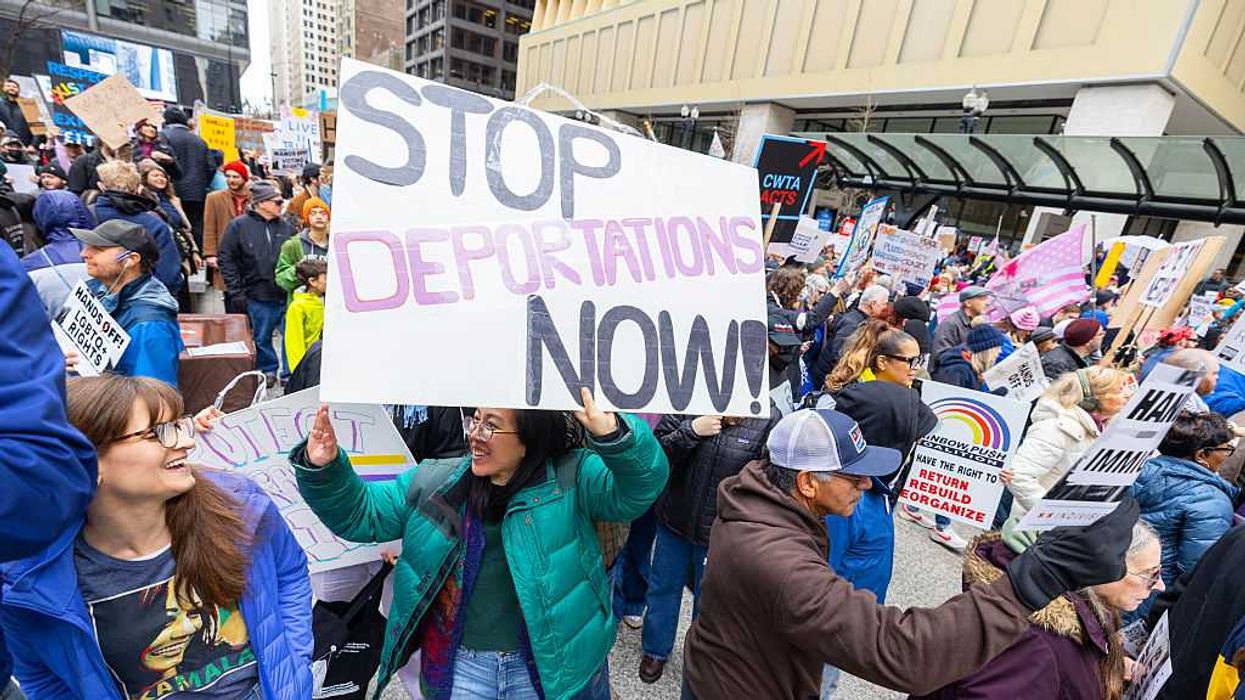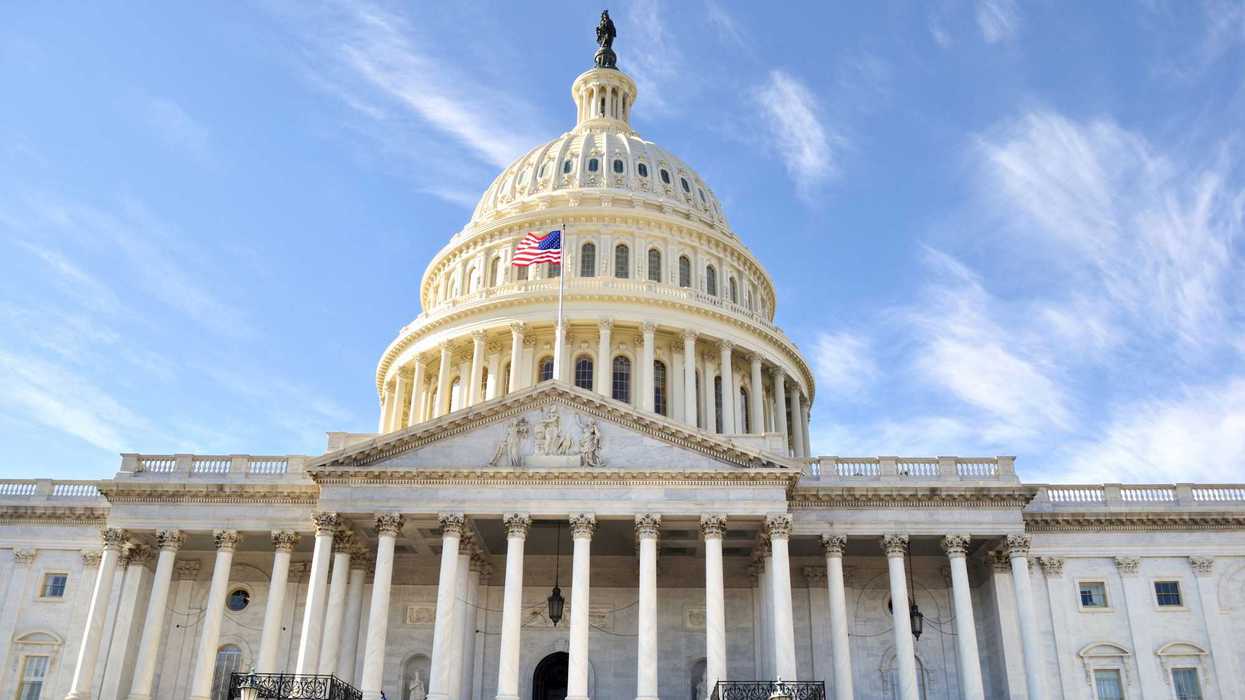Just after 1 a.m. on Chicago’s South Side, residents woke to pounding on doors, smoke in the hallways, and armed federal agents flooding their building. The raid was part of a broader immigration crackdown that has brought Border Patrol and ICE teams into the city using SWAT-style tactics. Journalists documented door breaches and dozens detained; federal officials confirmed at least 37 arrests on immigration charges. Residents described chaos, kids in shock, and damaged apartments. As of this writing, none of the 37 arrested have been charged with violent crimes or proven ties to the Tren de Aragua gang—the stated target. (Reuters, Chicago Sun-Times)
City and state leaders are pushing back. Chicago’s mayor created “ICE-free zones” on city property, limiting access without a warrant. Illinois and Chicago then sued to block the administration’s plan to add National Guard troops to “protect federal assets” and support federal operations, calling the move unlawful and escalatory. The legal fight is active; the state has asked courts to stop what it calls an “invasion.” (AP News, TIME)
Is this a good tactic for immigration enforcement in an American city—or part of a larger play to scare people into surrendering their civil rights? These are times when we are asked to choose: Will we protect the civil liberties of everyone or set up a new system where freedoms can be withdrawn at any time for anyone. In the current sweeps, American citizens are being detained and families separated. Who are we becoming?
And how does this moment compare to earlier times when Chicago saw soldiers or the National Guard on its streets?
What’s similar
Heavy force under a “restore order” message. Leaders again claim extraordinary force is needed to keep people safe. In 1968, Chicago police and the Illinois National Guard clashed with anti-war demonstrators around Grant Park and Michigan Avenue, using batons and large amounts of tear gas. The official Walker Report later called it a “police riot.” Today, the message pairs immigration enforcement with public safety while residents and state leaders describe peaceful neighborhoods turning into “war zones.” (Reuters; The Chicago Seven: 1960s Radicalism in the Federal Courts)
State–federal tension. Then, Chicago authorities faced national scrutiny over excessive force. Now, Illinois and Chicago are in court to stop National Guard support, arguing the White House is overstepping. (AP News)
What’s different
The mission and the targets.
- 1960s–70s: Public protest was the focus. In 1968, forces confronted demonstrators near the Democratic National Convention; in 1970, the Ohio National Guard’s presence at Kent State ended in tragedy when Guardsmen fired on students, killing four and wounding nine. (Walker Report summary)
- 2025: Raids target immigration enforcement—often at night, inside homes, and in mixed-status communities. Chicago’s sweep detained dozens on immigration charges and, by federal acknowledgment and news accounts, involved U.S. citizens and children in the chaos. (Reuters)
Who’s in charge.
- 1968: Chicago Police and the Illinois National Guard (under state control) led street response; the Walker Report criticized police conduct.
- 2025: DHS (Border Patrol/ICE) is out front. The administration is attempting to insert National Guard support in Chicago; Illinois is contesting that in court. (PBS)
The legal guardrails.
- Then: When the Guard operates under a governor (state status), it may assist with law enforcement. Federal troops face strict limits under the Posse Comitatus Act unless the president invokes the Insurrection Act. (Congress.gov)
- Now: Immigration enforcement is federal, so DHS can act without local approval. But using National Guard troops for city law-enforcement support still runs into the same guardrails unless specific statutes are triggered—at the heart of Illinois’ lawsuit. (AP News)
A 60-second explainer on Guard powers
- Posse Comitatus (1878): Bars the Army and Air Force from domestic law-enforcement roles unless Congress or the Constitution authorizes it; by policy, the Navy and Marine Corps are treated the same. (Congress.gov)
- National Guard under a governor (Title 32 / state status): Can help with policing because it’s a state force, not federal troops. (Congress.gov)
- Federalization / Title 10: If the president takes control of a state’s Guard, those troops become federal and fall under Posse Comitatus—unless the Insurrection Act is invoked, which allows limited domestic law-enforcement use. (Brennan Center)
Why this matters: from public spaces to private homes
The shift from policing protests in public spaces (1968) to federal immigration raids inside homes (2025) changes the risk to civil liberties. Warrants, probable cause, and due-process questions are now central. The harm is personal and ongoing: kids pulled from beds, tenants returning to boarded-up apartments, bystanders zip-tied in hallways. These are not nightly clashes in a park; they are rolling operations in residential buildings. Reuters
History also warns what happens when force escalates without tight controls. The “police riot” label in 1968 and the deaths at Kent State in 1970 remind us that civil order can be lost fastest by those claiming to enforce it.
We Are Chicago
Chicago has often been the stage where public order and civil liberty collide. In 1968, the city became shorthand for hardline policing during the Democratic National Convention. In 2012, mass protests returned for the NATO Summit, again putting Chicago at the center of national debates about protest, security, and state power. (ABC News)
But Chicago isn’t only symbolic—it’s a backbone of U.S. commerce. Metropolitan Chicago is the nation’s premier freight hub. Roughly one in four U.S. freight trains and about half of all U.S. intermodal trains pass through the region as freight transfers between western and eastern railroads. When Chicago is disrupted, supply chains across the country feel it—in higher prices, delays, and lost productivity. (Chicago Metropolitan Agency for Planning)
That’s why what happens here matters to everyone. If federal crackdowns in Chicago spill into broad militarized tactics—at homes, in neighborhoods, or around critical rail corridors—the costs won’t stop at city limits. They ripple into grocery bills, delivery times, and the basic trust people need to show up for work, school, or a peaceful march. The lesson is simple and national: protect safety and rights at the same time, or we end up hurting both.
Guardrails we can choose—right now
- Warrant transparency and after-action reports. Require DHS to publish (with privacy protections) warrant counts, legal bases for entries, and post-raid damage/claims data for large urban operations. Cities already demand similar reporting from SWAT.
- Clear federal–state MOUs. No Guard support in cities without written agreements with governors and mayors that define mission limits, rules of engagement, and command. This aligns with Posse Comitatus norms and makes accountability real. (CRS)
- Independent review. Standing inspectors-general reviews for any DHS operation that detains minors or sweeps up U.S. citizens, with public summaries due within 30 days. (Reuters)
- Equipment and tactics limits. Ban military-style tactics (e.g., explosive breaches or aerial insertions) in multi-family residences absent an imminent threat to life; require body-worn cameras for federal teams operating in cities. (Reuters)
Chicago has seen this argument before: How far can the government go—and who answers when it goes too far? The faces are different. The laws are clearer. But the core test is the same. If the goal is safety and the rule of law, then power must be limited, documented, and answerable to the people who live behind those doors.
For your reflection
What do you see in Chicago’s real-time photos and videos? Order being restored—or civil liberties being violated? These are situations where any of us could be the person filming, or the person detained. I’m practicing how to stay calm so I can be helpful and effective in the moment. What are you practicing and tensions rise?
- South Shore (75th & South Shore Dr.): Nighttime, street-level clips of staging and entries. (WBEZ)
- Logan Square (near Rico Fresh): Daytime phone video of a chemical canister thrown from an SUV on a busy street. (CBS News)
- Humboldt Park: Curbside clips of long-gun-carrying teams on residential blocks. (ABC7 Chicago)
This writing is part of the political essay series of Debilyn Molineaux and in support of a JEDI future. Justice, Equity, Dignity and Inclusion for all living beings.
Debilyn Molineaux is a storyteller, collaborator & connector. For 20 years, she led cross-partisan organizations. She currently holds several roles, including catalyst for JEDIFutures.org and podcast host of Terrified Nation. She also works with the Center for Collaborative Democracy, which is home to the Grand Bargain Project as a way to unify Americans by getting unstuck on six big issues, all at the same time. She previously co-founded BridgeAlliance, Living Room Conversations, and the National Week of Conversation. You can learn more about her work on LinkedIn.





















 Mayor Ravi Bhalla. Photo courtesy of the City of Hoboken
Mayor Ravi Bhalla. Photo courtesy of the City of Hoboken Washington Street rain garden. Photo courtesy of the City of Hoboken
Washington Street rain garden. Photo courtesy of the City of Hoboken